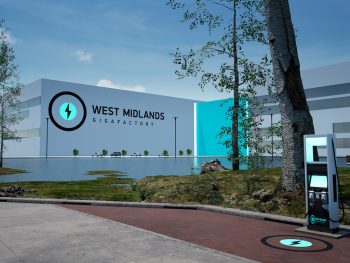The fleet and auto sector’s wish list for the new PM
As Liz Truss pushes ahead with plans for her administration to “transform Britain into an aspiration nation”, Fleet World asks the UK’s fleet and automotive sector about its top asks for the new PM.

Truss has pledged to “transform Britain into an aspiration nation with high-paying jobs, safe streets, and where everyone everywhere has the opportunities they deserve”
It’s only some 24 hours since Liz Truss came into power and she’s already facing a ‘bulging in-tray’ overflowing with problems; from the energy crisis to the threat of an imminent recession and soaring inflation. And that’s without further severe global headwinds caused by Russia’s war in Ukraine and the aftermath of Covid.
However, in her first address to the nation as Prime Minister, Truss has said that Britain can “ride out the storm”. She’s also pledged to “transform Britain into an aspiration nation with high-paying jobs, safe streets, and where everyone everywhere has the opportunities they deserve”.
Truss is also putting the finishing touches to her cabinet, giving top jobs to her allies and ousting prominent backers of leadership rival Rishi Sunak. So former Business Secretary Kwasi Kwarteng is now the man in charge of the economy while former Transport Secretary Grant Shapps is now out and Anne-Marie Trevelyan is in.
Meanwhile, Jacob Rees-Mogg has been appointed Business Secretary and will oversee energy and climate policy.
And former minister for international trade Ranil Jayawardena replaces George Eustice as Environment Minister.
While Truss’ first act will be to stage major state intervention in the energy market, she’s also pledged to tackle the other issues “holding Britain back”, saying that we need to “build roads, homes and broadband faster”, we need more investment and “great jobs” in every town and city across our country, and that we need to “to reduce the burden on families and help people get on in life”.
But what about the main priorities for the UK’s fleet and automotive sectors? We asked some of the leading experts.
Insight on future company car tax thresholds past 2025

Toby Poston, director of corporate affairs, BVRLA
Toby Poston, director of corporate affairs, BVRLA
“The UK government’s Net Zero Strategy has set ambitious targets for eliminating carbon emissions in an economically stable way.
“The surging uptake of electric vehicles has been one of this strategy’s major successes. Fleets are driving the decarbonisation of road transport, supported by powerful financial and tax incentives.
“The momentum is there, but it is fragile, with rising raw material costs and energy prices beginning to chip away at some of the cost of ownership benefits that EVs can offer. While the tax regime on electric company cars has been highly effective, it is weakened by the uncertainty of not knowing what the rates will be beyond April 2025. Those taking delivery of new electric cars today don’t know what their payments will be at the end of their lease agreement.
“This is not right and will only deter people from making the switch, leaving them in older, dirtier vehicles for longer.
“Our new Prime Minister undoubtedly has a mountain of issues to tackle and many hard decisions to make in her first 100 days. Fortunately for her, the solution to keeping road transport decarbonisation on track is clear. Keep EV Benefit-in-Kind tax rates as low as possible for as long as possible.”

Meryem Brassington, electrification propositions lead at Lex Autolease
Meryem Brassington, electrification propositions lead at Lex Autolease
“Significant challenges lie ahead as we head into the autumn. EV drivers face a substantial uplift in charging costs due to the energy price cap increase and further clarity is needed on company car tax tables beyond 2025 to give fleet managers the insights they need to make long-term purchasing decisions.
“As the new Prime Minister prepares to make her way through an already busy in-tray, it’s vital that policymakers continue to support the transition to an electric future and give drivers and businesses the confidence to make the switch to a zero-emission vehicle.
“The Government’s new £20m charge point scheme is another step in the right direction and all eyes will be on further support and funding to be announced before the year is out.”
Stay firm on net zero targets and the 2030 ICE ban

Rory Mackinnon, sales director, Holman
Rory Mackinnon, sales director, Holman
“Our worry with the new Government is that during the leadership campaign there were discussions about sustainable energy and how it may not be the answer, and consequently that it might be more sceptical about the transition to electric vehicles.
“If anything, it needs to go the other way. We need more investment in infrastructure, especially for commercial fleets who are often finding it financially impossible to put in place the major on-site charging facilities they need, while the rise in business electricity costs are close to making commercial EVs uncompetitive. Short and long-term solutions need to be found for energy supply.
“Then there’s the Advisory Electric Rate, which just doesn’t fit the way electricity is paid for, and is far too low. A new mechanism for this would be helpful.
“And on a very technical aspect that Liz Truss might not yet be up to speed on: it’s time we moved to an automated compliance documentation process for vehicle checking, testing and servicing to solve the bottleneck we currently have.”

Jon Lawes, managing director of Novuna Vehicle Solutions
Jon Lawes, managing director, Novuna Vehicle Solutions
“It’s imperative the new administration demonstrates a clear and transparent commitment to meet its net zero targets through unwavering support for the sector which continues to face significant headwinds.
“The Government’s 2030 target is coming under growing scrutiny as the deadline fast approaches, and with increasing pressure on public funding, it’s vital we have clarity on how existing investment, much of it sitting with the Metro Mayors, is being used to deliver the infrastructure we need.
“A quick win would be to remove the uncertainty around company car tax bands beyond April 2025, giving businesses currently struggling with increased energy costs sufficient time to calculate the tax costs of vehicles in their fleets.”
Ensure UK Automotive is in pole position in the race to net zero

Mike Hawes, SMMT chief executive
Mike Hawes, chief executive of the Society of Motor Manufacturers and Traders (SMMT)
“The SMMT congratulates Liz Truss on her election as leader of the Conservative Party and looks forward to working with her and her new team to drive the economic growth and investment the country desperately needs.
“The new Prime Minister faces immense challenges, not least the urgent need for measures to mitigate the crippling effect of skyrocketing energy prices on businesses and households. Reducing the cost of doing business must be a priority.
“Growth, however, will depend on a competitive business framework which stimulates investment, drives innovation and positions the UK at the forefront of global issues, not least the race to net zero. UK Automotive is well positioned to deliver these ambitions and the high-value jobs that accompany them.”
Rethink the approach to road safety

Seb Goldin, CEO, Red Corporate Driver Training
Seb Goldin, CEO, Red Corporate Driver Training
“We’d hope the new government would take a common-sense, empirical approach to road safety.
“During the leadership campaign there were discussions about dropping variable speed limits, after Conservative members complained about them. Changing road safety policy just because some people don’t like certain elements is fundamentally wrong.
“Our hope is this government will make more considered decisions than the previous one, which unilaterally removed some rigorous road safety testing and legislation under the auspices of ‘reducing red tape’. But there is a proven need for it.
“For example, we need to retain C1 testing – currently under consultation – because abolishing the testing regime would be dangerous in letting untrained drivers behind the wheel of some very big vehicles, and it wouldn’t even achieve the objective of alleviating the driving test waiting time.
“Driving at work statistically remains the riskiest activity employees undertake, and through decades of road safety initiatives, training, testing, and improvements to vehicles, the roads are a safer place. But there is still much progress to make, and I hope the Government recognises this, and doesn’t assume technology will solve all ills: the person behind the wheel is still fundamental to road safety.”
Overhaul the ‘unfit-for-purpose’ advisory fuel rate for EVs

Ashley Tate, CEO and co-founder, Mina
Ashley Tate, CEO and co-founder, Mina
“Our research shows that the Advisory Electric Rate (AER) is far too low and not fit for purpose: almost every driver reclaiming using it ends up out of pocket.
“So if this Government is serious about moving drivers in to electric vehicles, it must advise an accurate way of paying employees for their business mileage – something Mina solves.
“It is businesses who are powering the change to electric, yet the payments are often through private accounts at rates which can average from 8 pence per mile (ppm) to 18ppm for vans and 6ppm to 12ppm for cars, depending on where they’ve charged, so one simplistic pence-per-mile figure for everything will never work.
“The electricity sector is completely different to the petrol and diesel one, so old ways of working, such as the AER, just don’t cut it. We need more control and clarity over prices, both for private and business customers for a start, and then there needs to be a real commitment to the expansion of green energy sources.
“We can see from our customer data that businesses can hugely reduce their carbon footprint, and therefore the pressure on energy production, by charging at certain times. It would be great to see this kind of smarter charging incentivised so businesses can plan, and benefit from, using greener energy.”
Upskill the automotive workforce for the EV revolution

Steve Nash, CEO of the IMI
Steve Nash, CEO of the IMI
“Clearly the immediate priority for our new PM is to fix the issues on utilities and other operating costs which are already causing significant stress for fleet operators and the businesses that support them.
“But the PM also needs to avoid being too short-sighted. The longer-term issue of skills won’t go away and if the UK is going to achieve its sustainability targets we have to remain focused on skilling up the workforce for zero emissions as well as doing what we can to make apprenticeships in automotive as appealing as possible.
“It’s all too easy for the role of the automotive workforce to be forgotten – even become invisible. But without people who have a commitment to continuing professional development linked to evolving automotive technologies, the UK economy will grind to a halt.
“Right now we don’t have the right number and quality of technicians to keep all forms of mobility on the roads – from the trucks that move our goods to the vehicles that are essential to get to school, work and care for family members. And crucially, we need to be future-proofed for the next generation of mobility, namely connected and autonomous.
“It is critical that the Government, under the new PM’s leadership, supports the IMI’s efforts, along with the Sector Advisory Group, to establish appropriate industry skills standards within IMI TechSafe for Connected and Autonomous covering data protection and cyber security.”
Put LCVs centremost of electric vehicle charging strategies

Neil McCrossan, Northgate Vehicle Hire’s sales and marketing director
Neil McCrossan, Northgate Vehicle Hire’s sales and marketing director
“We are increasingly spending more time working with companies to evaluate how electric vehicles fit into their current fleet mix. There is a growing interest from companies in reducing their fleet emissions and working towards net zero, particularly on vans which work primarily in an urban environment, but the first question they ask is about charging.
“If a van covers a few hundred miles a day on deliveries, they are likely to have to charge their van at least once whilst on the road. Planning and investing in an electric charging infrastructure that can accommodate LCVs, not just cars, should be a priority as without it the onboarding of electric vans by fleets will slow down even further.
“Diesel and electric will continue to work together for the next few years and with the right charging structure in place, it will give OEMs a further incentive to develop and launch more electric van options with longer ranges.”
Ensure the UK doesn’t fall behind in the ‘global gigafactory’ race

The West Midlands Gigafactory joint venture called for work to develop “the right environment to attract battery manufacturers to the UK and avoid falling behind in the global gigafactory race”
Against a backdrop of renewed calls to increase investment in gigafactories within the UK – such as by EY earlier this week – the West Midlands Gigafactory joint venture has said this week that it welcomes the PM’s commitment to support its project and the opportunity it presents for the UK.
But the JV has also said that Truss and her administration need to work on developing “the right environment to attract battery manufacturers to the UK and avoid falling behind in the global gigafactory race”.
A spokesperson outlined: “As we move towards an increasingly electrified world, it is clear that our new Prime Minister recognises that gigafactories are critical to the UK’s automotive and domestic energy sectors, job creation, future economic growth and achieving net zero targets, making the West Midlands Gigafactory an imperative for the UK’s electrified future.”
They added: “Our 309-acre site is the only one in the UK which has already secured planning permission for a gigafactory with a production capacity of up to 60GWh, 30% of the Faraday Institution’s recent forecast requirements for the UK in 2040.
“We are perfectly located at the heart of the UK’s automotive industry in the West Midlands with access to world-class skills, talent and supply chain capabilities in the region. It benefits from a strong transport infrastructure for the future gigafactory’s logistics requirements, supply chain and access for up to 6,000 employees.”
Reduce fuel duty immediately

ChooseMyCar.com commercial director Ben Maguire
New research, released this week, shows that 96% of UK drivers would support a call on the Government to implement a reduction on tax fuel.
Used car buying service ChooseMyCar.com conducted a new study into how the cost of living increases, including high fuel prices, are impacting the lives of drivers in the UK and unsurprisingly found massive support for fuel duty cuts.
Although fuel prices are down from their historic highs of the last few months, costs are still extremely high.
ChooseMyCar.com commercial director Ben Maguire said: “It’s easy to accept fuel costs and almost be grateful that they aren’t at the highs they have been in previous months.
“But the fact remains that fuel prices are still extremely high, and an added pressure on families who are already struggling.
“It’s time for the Government to step in and reduce tax on fuel, to give British drivers the support they need. Our new Prime Minister may only be in her first couple of days of leadership, but we urge her to take these stats seriously and consider taking action.”
The AA’s top 10 for motorists

Edmund King, president of the AA
And finally, as the UK welcomes Anne-Marie Trevelyan as the 13th Transport Secretary this century, the AA has set out its top 10 priorities for motorists.
1) Make UK roads safer – promote vision zero road deaths and set targets. Improve rural roads, cycling, pedestrian safety.
2) Surge in EV charging – improve charging infrastructure, cut VAT for on-street chargers to 5%.
3) Boost for zero emission vehicles – incentives for lower-income drivers to go electric and set longer-term fiscal incentives for company car drivers.
4) Reform smart motorways – full review and promote ‘controlled’ motorways with hard shoulder.
5) Fix the roads – boost ring-fenced spending and funnel penalty charge income into filling potholes.
6) Expand Park and Ride – cut congestion and pollution with cost-effective parking on city outskirts and help urban alternative transport.
7) Increase traffic police – cops in cars reduce overall crime and improve road safety.
8) Fuel price transparency – extend Northern Ireland’s Fuel Price Checker tool to reinvigorate competition and consider EV charge rate transparency.
9) Moving traffic violation enforcement protection – extend online transparency of London’s traffic offences tribunals.
10) Speed up roll-out of assisted driving technology – mandate AEB, reduce collisions, cut casualties and improve road network efficiency.
“Anne-Marie Trevelyan’s appointment as the 13th Transport Secretary this century, despite the financial pressures on the country, still holds the potential for revolutions in the switch to electric vehicles, road safety, competitive pricing, fair enforcement and a leap in car technology,” said Edmund King, the AA’s president.
“Unfettered by covid lockdowns and with much of the groundwork already laid for transport innovation, the new Transport Secretary needs to be a plucky 13.”

















